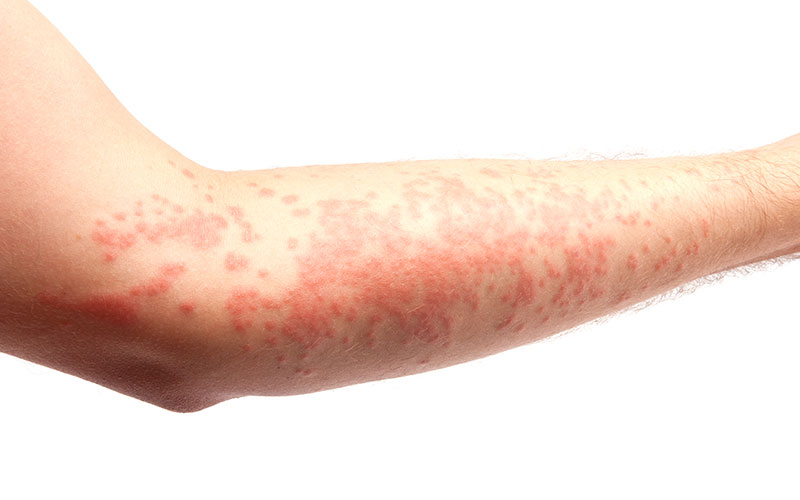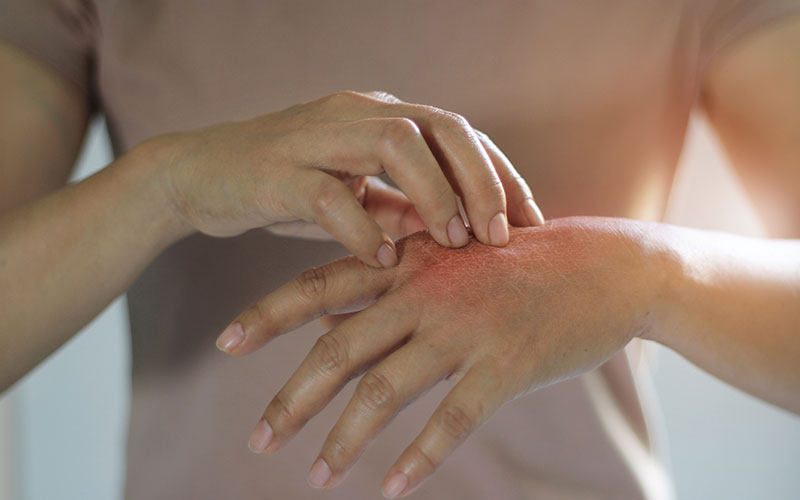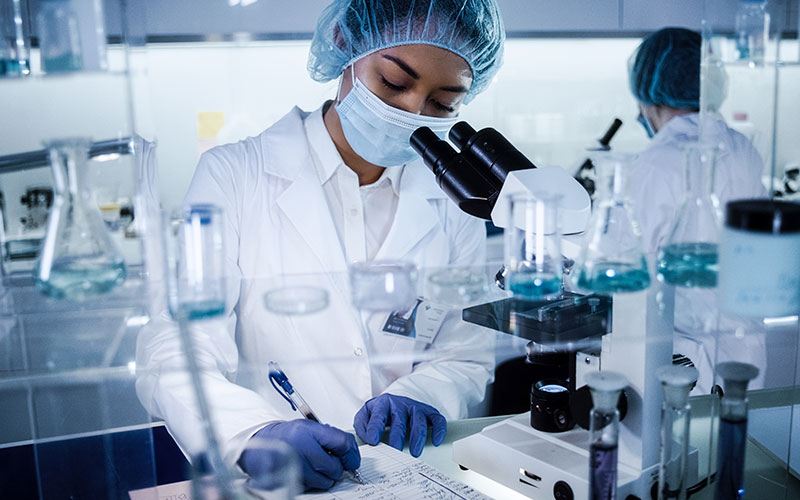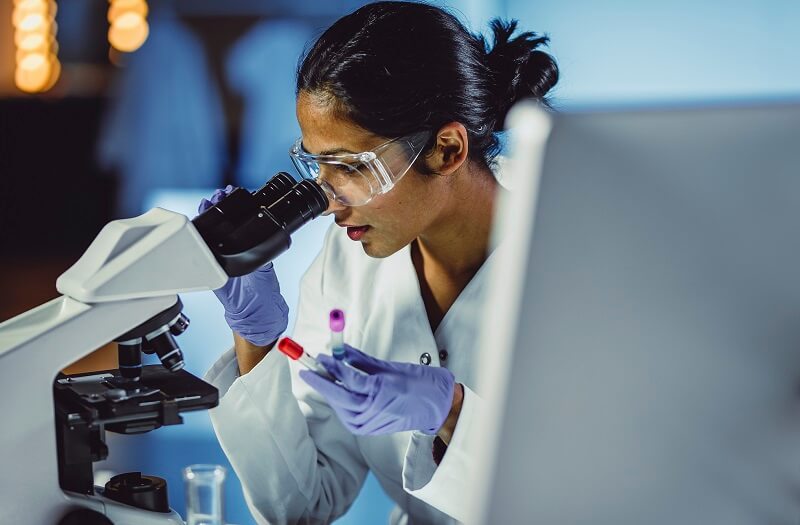- Home
- Growth Hormone
- Growth Hormone
- Growth Hormone Deficiency
- Growth Hormone Therapy
- Growth Hormone Injections
get startedThe Most Effective Hormone Replacement TherapiesCan You Have an Allergic Reaction to HGH?

Allergic reactions to HGH injections are exceedingly rare. When such reactions do occur, they are usually the typical skin reactions such as hives and itchy skin.
Human growth hormone (HGH) therapy is approved by the FDA for the treatment of growth hormone deficiency. As such, HGH is generally regarded as safe. However, as in any prescription medication, allergic reactions to HGH or to some of the ingredients in HGH injections.
Signs of an HGH Allergic Reaction
While it is unlikely that patients undergoing growth hormone therapy will have an allergic reaction, it is important that you learn to recognize the signs of an allergic reaction to HGH, so you can take appropriate action should such a reaction take place.
According to the prescribing information for Norditropin, a common brand of HGH injections, get emergency medical help if you have signs of an allergic reaction: hives, difficult breathing, swelling of your face, lips, tongue, or throat.
Here is a complete list of things that could be signs of an allergy to HGH:
- Swelling of the tongue, lips, mouth, or face
- Breathing trouble
- Skin rashes, swelling, or redness
- Severe itching
- Wheezing
- Sweating
- Dizziness
- Fainting
- Rapid heartbeat
- Pounding in chest
How Common Are HGH Allergic Reactions
Allergies to HGH are extremely rare. Most of our patients on human growth hormone therapy go through their course of HGH injections with few of any problems. That is not to say that an allergic reaction is impossible. It is just unlikely.
If you do notice any symptoms of an allergic reaction, contact your doctor at once. Of course, life-threatening responses should be directed immediately to an emergency room for treatment.
It is not uncommon to experience injection site redness, pain, irritation, swelling, or itching. These are not the same things as an allergic reaction. If the redness or swelling extends well beyond the injection site, that could be a sign of an allergic response.
Here is another thing to note about "allergies" and HGH. You may see some information on dubious websites claiming that HGH can be used to treat allergies. There is no clinical evidence that HGH can be used in this way.
This myth has probably arisen from the idea that some patients who are prone to allergies may see a reduction in allergy symptoms when taking HGH. But that is because of HGH’s ability to boost your immune system and reduce systemic inflammation. Doctors do not prescribe HGH to treat allergies.
Allergic reactions to HGH are extraordinarily rare.
Why Do HGH Allergic Reactions Occur
Again, allergic reactions to HGH are quite rare. When they do occur, doctors believe that the allergic reaction is more likely due to one or more of the preservatives or other ingredients in HGH injections rather than the actual HGH molecule itself. Also, most studies of patients who have had an allergic reaction to HGH already had an underlying skin condition that was triggered or exacerbated by the HGH.
Have There Been Studies of HGH Allergic Reactions?
Allergic reactions to HGH therapy are remarkably uncommon; however, they have been studied. Since allergic reactions to HGH are so uncommon, there have not been many studies on them. However, the few studies of HGH allergic reactions confirm their rarity. Studies of allergic reactions to HGH have also shown that on the rare occasions when they do occur, they are usually skin-type reactions, as opposed to other allergic reactions such as anaphylaxis.
A 2018 study stated, "Of the few reported cases of allergic reactions, pruritic urticaria (itchy skin plaques) was the predominant clinical manifestation reported. Other reported reactions include hives, local erythema (skin rash), and generalized pruritus (itch). Skin testing was positive to growth hormone products in several reported cases, but there are no reported cases where delayed reactions developed upon skin testing.”
This study also concluded that if a reaction to HGH occurs, it is more likely to a preservative in the injection formulation than to the HGH molecule itself and suggested that doctors could avoid such reactions by using a preservative-free HGH injection.
“Clinical manifestations of allergic reactions to recombinant hormones such as HGH are uncommon. Being aware of potential reactions is crucial for appropriate management and evaluation of patients receiving therapy. Hypersensitivity reactions could be due to HGH itself or an excipient in the product. We recommend considering skin testing to a preservative-free formulation of HGH or a trial of it in patients with delayed local reactions to HGH.”
A previous study, this one is published in 2017 in the Journal of Pediatric Endocrinology and Metabolism,expressed a similar conclusion.
“Though rare, allergic and non-allergic skin reactions are known to occur with HGH. It is important to know if the allergic reaction was due to the growth hormone molecule or one of the preservatives. It is also important to consider a non-allergic reaction due to flare-up of underlying skin disorders…."
Usually, an allergic reaction to an HGH injection is to the preservatives in the shot and not to the actual HGH.
Now that you know a little bit more about HGH and the potential for allergic reactions, why not contact us today and learn more about the safety and efficacy of hormone replacement therapy.
- Growth Hormone Therapy


























